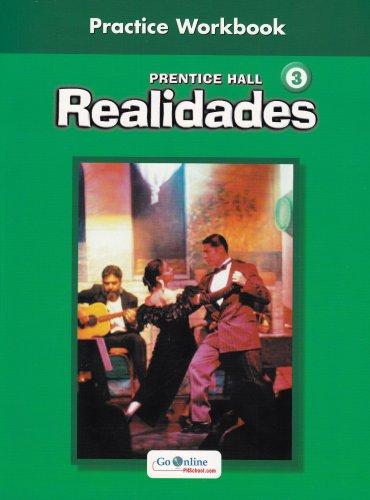
All Solutions
Page 138: 10-6
Given that the verb in the main clause “piden” is in the present tense; we´re conjugating “hacer” using the present subjunctive:
Los estudiantes (ellos) + hagan / Students (they) + do
Let´s take a look at the question:
¿Los profesores piden que los estudiantes hagan tarea durante las vacaciones?/ Do teachers ask students to do homework during vacation?
Antes pedían que los estudiantes hicieran tarea durante las vacaciones. Ya no./ They used to ask students to do homework during the holidays. Not anymore.
Given that the verb in the main clause “permite” is in the present tense; we´re conjugating “aplicarse” using the present subjunctive:
Las reglas (ellas) se apliquen/ The rules (they) be applied
Let´s take a look at the question:
¿La escuela permite que las reglas no se apliquen con igualdad?/ Does the school allow the rules to not be applied equally?
Antes permitían que no se aplicaran con igualdad. Ya no. / Before they allowed the rules not to be applied equally. Not anymore.
Given that the verb in the main clause “deja” is in the present tense; we´re conjugating “abrir” using the present subjunctive:
Los profesores (ellos) + abran / The teachers (them) + open
Let´s take a look at the question:
¿La escuela deja que los profesores abran los armarios de los estudiantes? / Does the school let teachers open student lockers?
Antes permitía que los profesores abrieran los armarios de los estudiantes. Ya no./ It used to allow teachers to open student lockers. Not anymore.
Given that the verb in the main clause “insiste” is in the present tense; we´re conjugating “haber” using the present subjunctive:
haya
Let´s take a look at the question:
¿El director insiste en que haya un código de vestimenta? / Does the principal insist on a dress code?
Antes insistía en que hubiera un código de vestimenta. Ya no. / Before, he insisted that there be a dress code. Not anymore
Given that the verb in the main clause “es” is in the present tense; we´re conjugating “participar” using the present subjunctive:
Los estudiantes (ellos) + participen / Students (they) + to participate
Let´s take a look at the question:
¿Es posible que los estudiantes participen en todas las decisiones del colegio?/ Is it possible for students to participate in all decisions of the school?
Antes era posible que los estudiantes participaran en todas las decisiones del colegio. Ya no./ Before it was possible for students to participate in all decisions of the school. Not anymore.
Given that the verb in the main clause “Es” is in the present tense; we´re conjugating “quedarse” using the present subjunctive:
Los estudiantes (ellos) + se queden / Students (they) + to stay
Let´s take a look at the question:
¿Es necesario que los estudiantes se queden hasta las cinco de la tarde?/ Do students need to stay until five in the afternoon?
Antes era necesario que los estudiantes se quedaran hasta las cinco de la tarde. Ya no./ Before it was necessary for students to stay until five in the afternoon. Not anymore.
Given that the verb in the main clause “se prohíbe” is in the present tense; we´re conjugating “sacar” using the present subjunctive:
Los estudiantes (ellos) + saquen / Students (they) + to borrow
Let´s take a look at the question:
¿Se prohibe que los estudiantes saquen libros de la biblioteca?/ Are students prohibited from borrowing books from the library?
Antes se prohibía que los estudiantes sacaran libros de la biblioteca. Ya no./ Before, students were prohibited from borrowing books from the library. Not anymore.
Given that the verb in the main clause “exigen” is in the present tense; we´re conjugating “levantarse” using the present subjunctive:
Los estudiantes (ellos) + se levanten / Students (they) + get up
Let´s take a look at the question:
¿Exigen que los estudiantes se levanten cuando entra el profesor?/ Do they demand that the students get up when the teacher enters?
Antes exigían que los estudiantes se levantaran cuando entraba el profesor. Ya no. / They used to demand that the students get up when the professor entered. Not anymore.

